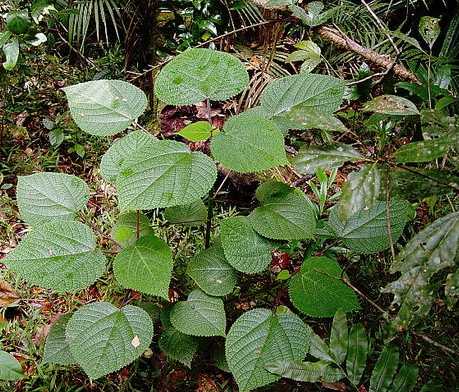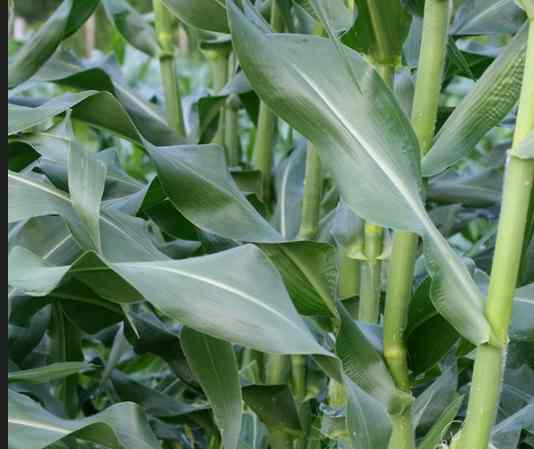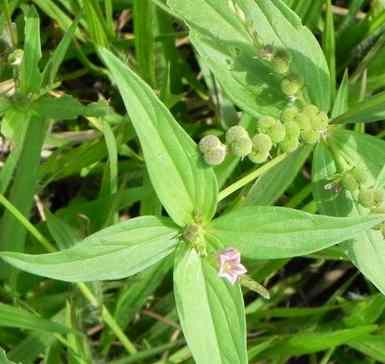
support@yorubalibrary.com
+2348073529208, 07038599574

Ewe Daiko is one of the most mysterious and spiritually powerful leaves in Yoruba culture. Unlike other herbs mainly used for healing, Daiko is known for its strong mystical power to confuse and disorient a person. According to Yoruba beliefs, when a person accidentally touches or brushes against Daiko leaf, they lose consciousness, forget their way, or wander aimlessly as if hypnotized.
This leaf is never eaten or used for general medicine; it is used purely as a spiritual and mystical plant. Herbalists and spiritual practitioners handle it with great caution, as its power can be dangerous when misused.
Ewe Daiko grows mostly in thick forests and sacred bushy areas, and it is not commonly found in open farmlands or home gardens.
Key Facts
Category: Leaf
Botanical Name: Nil
Common Name: Nil
Yoruba name: Ewe Daiko
Igbo Name: Nil
Hausa Name: Nil
Health Benefits
Ewe Daiko is not a medicinal plant for common health treatments. Its main significance lies in its mystical and spiritual properties. However, in rare cases, Yoruba herbalists may use it in controlled rituals to:
1. Calm Mentally Disturbed Patients
When properly prepared with other herbs, Daiko is sometimes used in rituals to calm people who are spiritually or mentally disturbed.
2. Spiritual Reset for Bewitched Persons
Some herbalists use Daiko in special cleansing to neutralize confusion caused by witchcraft or spiritual attacks.
(Important: Ordinary people are strictly warned never to use or experiment with this leaf due to its dangerous nature.)
Want to treat common ailments such as Malaria, Cough, Measles, Typhoid, Pile etc naturally without spending much? Grab a copy of Authentic Herbal Solutions: 15 Common Ailments & Their Natural Cures. A practical eBook recommended for everyone regardless of tribe, religion or association. Order below or Download sample here
AUTHENTIC HERBAL SOLUTION #4KOne Yoruba proverb says "Bí olóde ò kú, òde rè kì í wu Gbégi". Do you know that Gbégi is actually a leaf/plant? Get Yoruba Proverbs on Plants and Herbs, which is a collection of Untold Wisdoms Hidden in Leaf and plants comprising their Life Applications & Moral Teachings. Order below or download sample here
YORUBA PROVERBS ON PLANTS #4KSpiritual Use
1. Confusing Enemies and Intruders
In Yoruba traditional belief, Daiko is used by spiritualists to make enemies or thieves forget their mission or lose their way completely when they enter a protected area.
2. Protection Against Evil Attacks
Some herbalists plant Daiko around farms or sacred shrines to distract or confuse harmful intruders and spiritual attackers.
3. Returning Evil to the Sender
Daiko is used in strong rituals to send back confusion, madness, or spiritual attacks to those who sent them - repellent.
4. Spiritual Punishment
When spiritually provoked, Yoruba herbalists may use Daiko to temporarily disorient wrongdoers until proper rituals are performed.
5. Neutralizing Bad Charms
In rare cases, Daiko is used in controlled rituals to cancel strong charms or evil works placed on a person or property.
Characteristics
⦁ Physical Appearance –
Ewe Daiko has broad, soft green leaves with a slightly glossy surface, but many people avoid touching it due to its mystical reputation.
⦁ Smell and Taste –
It has a mild herbal smell; its taste is not commonly described because it is never used as food or chewed raw.
⦁ Growth Pattern –
Found mainly in thick forests, sacred groves, and sometimes planted secretly by herbalists.
Functions
⦁ Spiritual Protection –
Used to protect properties, farms, and sacred places by confusing intruders.
⦁ Mystical Punishment –
Causes disorientation and confusion to wrongdoers when spiritually activated.
⦁ Neutralizing Evil Works –
Part of herbalist rituals to cleanse or return witchcraft attacks.
Conclusion
Ewe Daiko is one of the most mystical and spiritually feared Yoruba plants. Known for its ability to cause confusion, memory loss, and disorientation when touched, it is used mainly by skilled herbalists for protection, punishment of enemies, and spiritual cleansing. Ordinary people are strongly advised not to handle this leaf carelessly due to its mysterious power.
Have you heard of our Yoruba Herb Dictionary? This contains names of Yoruba Leaf, Roots, Barks, Characteristics, Properties & Identification with HD Pictures. Order below or download sample here
A-Z HERBS & LEAF DICTIONARY #4K
Know more about the Yoruba traditional uses and he…

Learn about Ewe Aran, a potent Yoruba medicinal le…